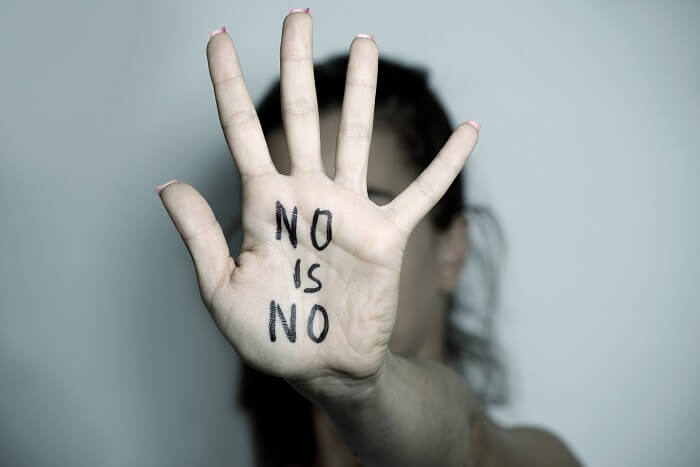Gender-Based Violence

Gender-based violence refers to violence that is meted out on the basis of gender. When a man is violent towards a woman, or a more underprivileged gender, it is referred to as gender-based violence. So why does gender become a basis of violence?
In a patriarchal society, gender has a hierarchy. Straight men are at the top of this hierarchy. They gain most of the benefits of this hierarchy. They are said to be bread-winners and control most of the wealth in that society. Their contributions to the economy are measured and valued in the market, whereas the contributions of women are less valued by society.
Historically, in any patriarchal society, including ours, women have always tried to level the playing field. There are always women who refuse to give in and seek a life that is bigger and freer than the one that is socially allowed to her. In this case, as in the case of any other oppression, she is subject to different kinds of violence. Those forms of violence may be physical and direct, or societal and indirect, which requires deeper analysis.
When people think of violence against women, they typically think of physical violence, which may be apparent. Such kinds of violence include but aren’t limited to sexual violence, like rape or sexual assault, or molestation. In many cases, men have justified such violence on the grounds that the woman was dressed provocatively. However, the fact that women from all ages, from all walks of life, wearing a myriad kinds of clothing have been subject to sexual violence is enough to dispel such claims.
Physical assault, like other kinds of violence is meted out by a socially more dominant gender, in this case men. Does that mean that women aren’t capable of being violent towards men? No. It still qualifies as violence when a woman hits a man. It just doesn’t qualify as gender-based violence, because gender-based violence is when the man is provided protection or impunity by virtue of their position as a more dominant gender.
Violence that women face isn’t limited to physical violence. Many women face emotional abuse, mental abuse, and financial abuse as well. Denial of financial resources in case a woman is dependent, harassment for dowry, extreme forms of jealousy, bars on her mobility are all examples of violence.
Many women face violence in relationships. They’re often discouraged from walking out of a relationship because of traditional constraint, or emotional entrapment. Women often get trapped in abusive marriages, relationships, which they find unable to walk out from. When they do manage to get out, they’re also victim-blamed by being asked why they didn’t walk out. The truth is that relationships are complex, and are deep emotional meshes. There can be many reasons why women don’t walk out of an abusive relationship. When survivors do tell their tales, they deserve all our empathy and support.
Gender-based violence isn’t limited to just cis-gender women. Many transgender women and transgender men also face a host of violence. In countries where their gender isn’t recognized by society, they also face societal violence. They’re denied housing, cat-called on the street, denied choice of bathrooms, humiliated, and denied social security. There’s also a well-documented record of hate crimes against trans women and men in many countries. All of these are examples of what is called structural violence.
Gender-based violence derives its power from social prejudices, taboos, and inequality. Societies that are more patriarchal see more violence, whereas societies that are more equal see less violence. While there are a lot of metrics available to measure it, the crux of the matter is that violence is subjective.
In many cases, the man is unaware that he was being violent. Even if the intent was not to be violent, it is the impact that matters. That’s why it is said that we should trust women when they say they faced violence, and encourage women to trust themselves. Gender- based violence is often masked under other sentiments. It can often be felt, but not seen. When women feel violated, even if it seems like a grey area, chances are they probably are being violated.
We can fight against gender violence on many levels. On an individual level, we can be more empathetic and kinder to women who do speak out. On a societal level, we can pressure government officials to pass laws that protect women, trans women and men. We can work towards making our society less prejudiced. We can empower women to stand on their own feet and educate young girls about consent and self-preservation from an early age. But the most important thing is to talk about it openly. Megha in her Radio show and MTV Nishedh, both encourage you to talk openly and aim to uplift the society.



comments
Log In or register to comment